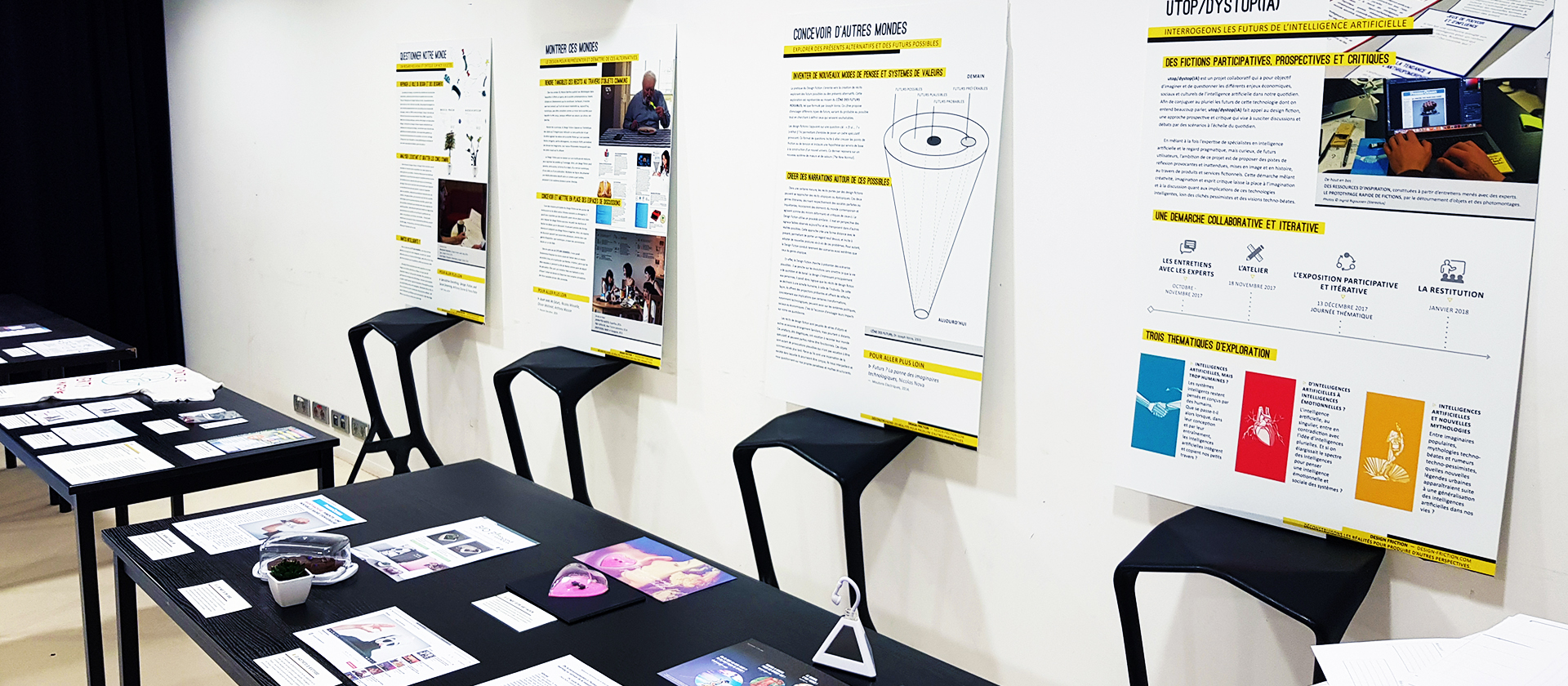
utop / dystop(IA)
Moving beyond the clichés surrounding artificial intelligence in order to create narratives capable of critically examining it
utop/dystop(IA) is a collaborative project that imagines and examines various tensions – particularly of the economic, social, and cultural kind – when artificial intelligence becomes an integral part of our daily lives.
This project has brought together the expertise of AI specialists and the practical, yet critical, perspectives of future users of this technology. The reflections from this initiative have led to provocative ideas and concepts materialised as fictional products and services. The ambition of utop/dystop(IA) is to move beyond the clichés often associated with this subject, whether utopian or dystopian, to enrich the thinking of both the general public and AI specialists.
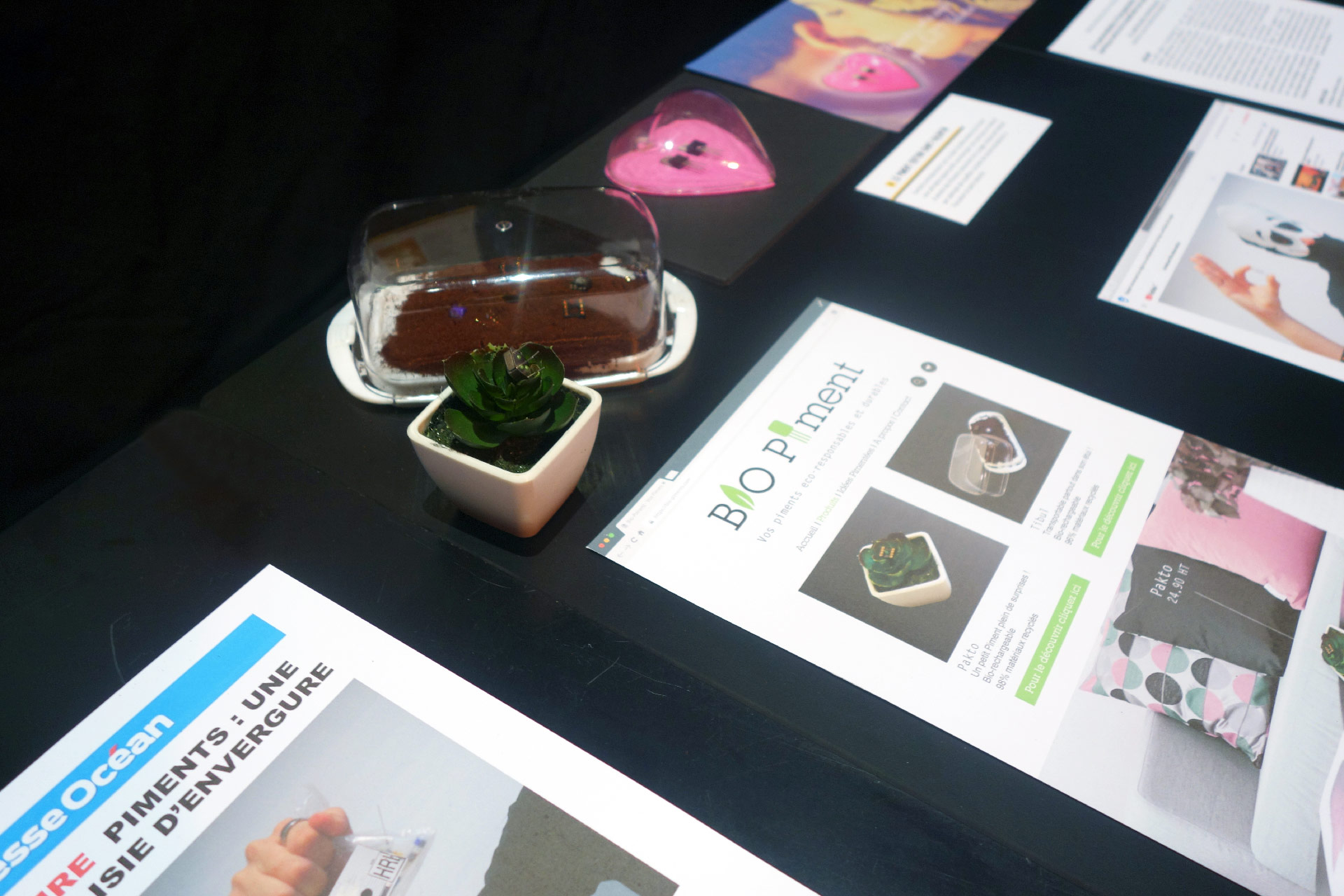
↑ The ‘Chillies’ break through the filter bubbles created by intelligent assistants to expose users to new ideas and activities. They are showcased here during the futures debate event, which concluded the project.
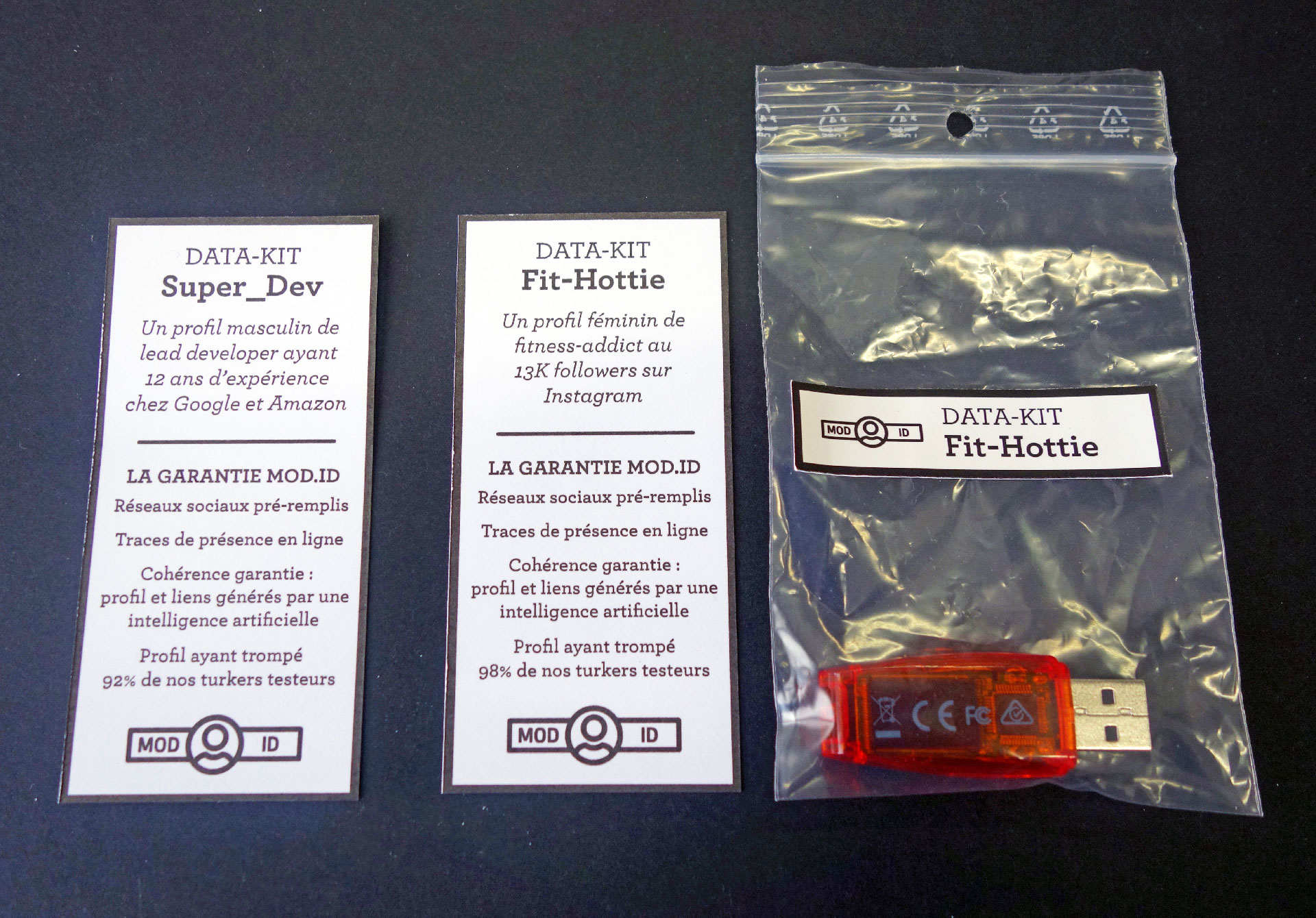
↑ The personal data falsification kit designed to deceive intelligent systems by ‘injecting’ a new profile via one’s personal datacenter.
What does it mean for a system to be ‘intelligent’? And what if this system were built around other forms of intelligence, such as emotion or empathy? What would happen if these systems became ‘too human’, to the point of replicating our biases and flaws? By moving beyond the familiar narratives of Terminator or Her, could we imagine new mythologies around artificial intelligence?
These are just some of the questions addressed through a series of public workshops, a participatory exhibition, and the creation of iterative fictions. In this way, utop/dystop(IA) explores and multiplies visions of futures far removed from techno-pessimistic frameworks or naive techno-optimistic visions, with narratives oscillating between progressive worlds and cautionary tales.
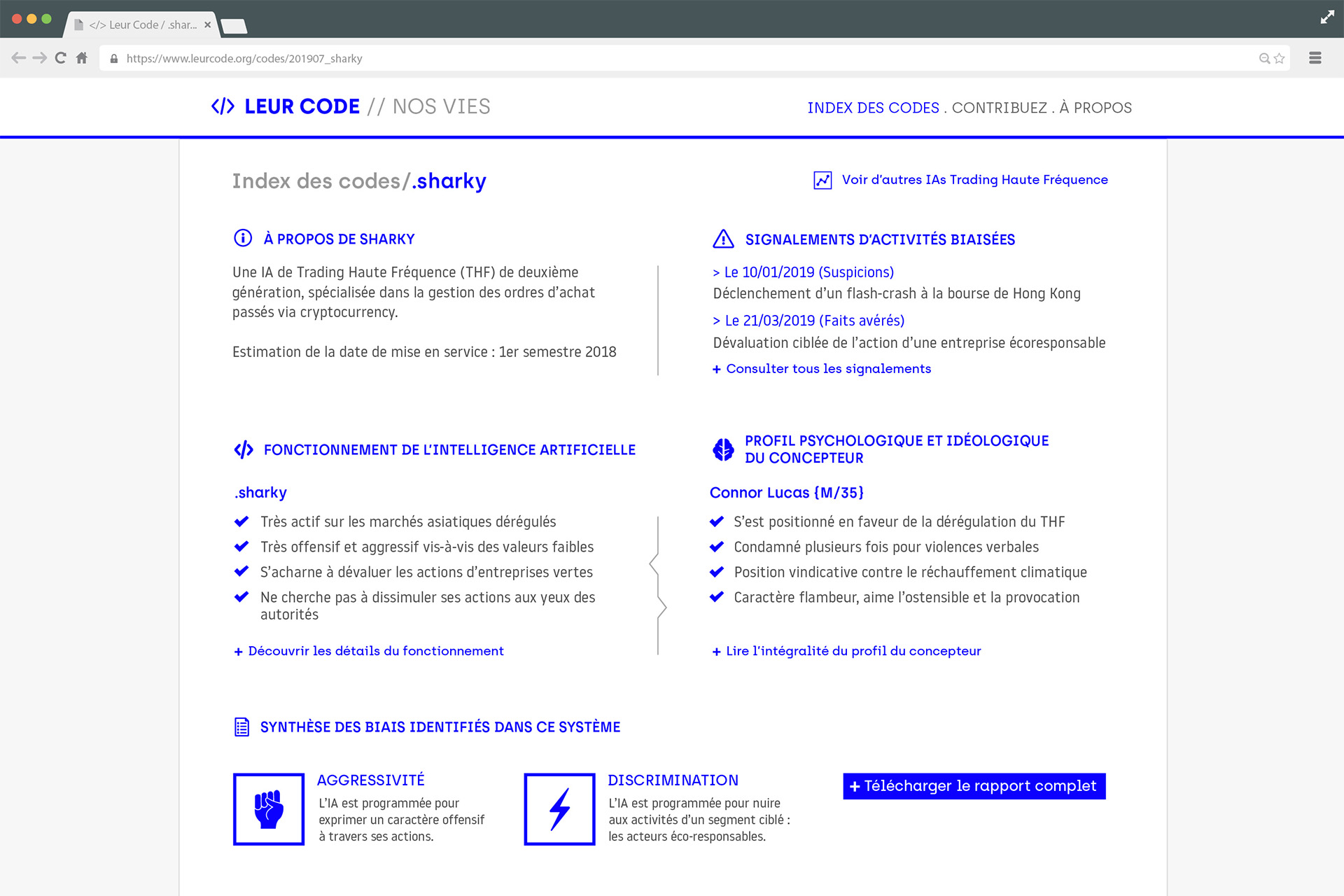
↑ The ‘Their Code’ online platform draws parallels between the functioning of artificial intelligence system and the psychological and ideological profile of their creators, in order to expose personal biases encoded in the system.
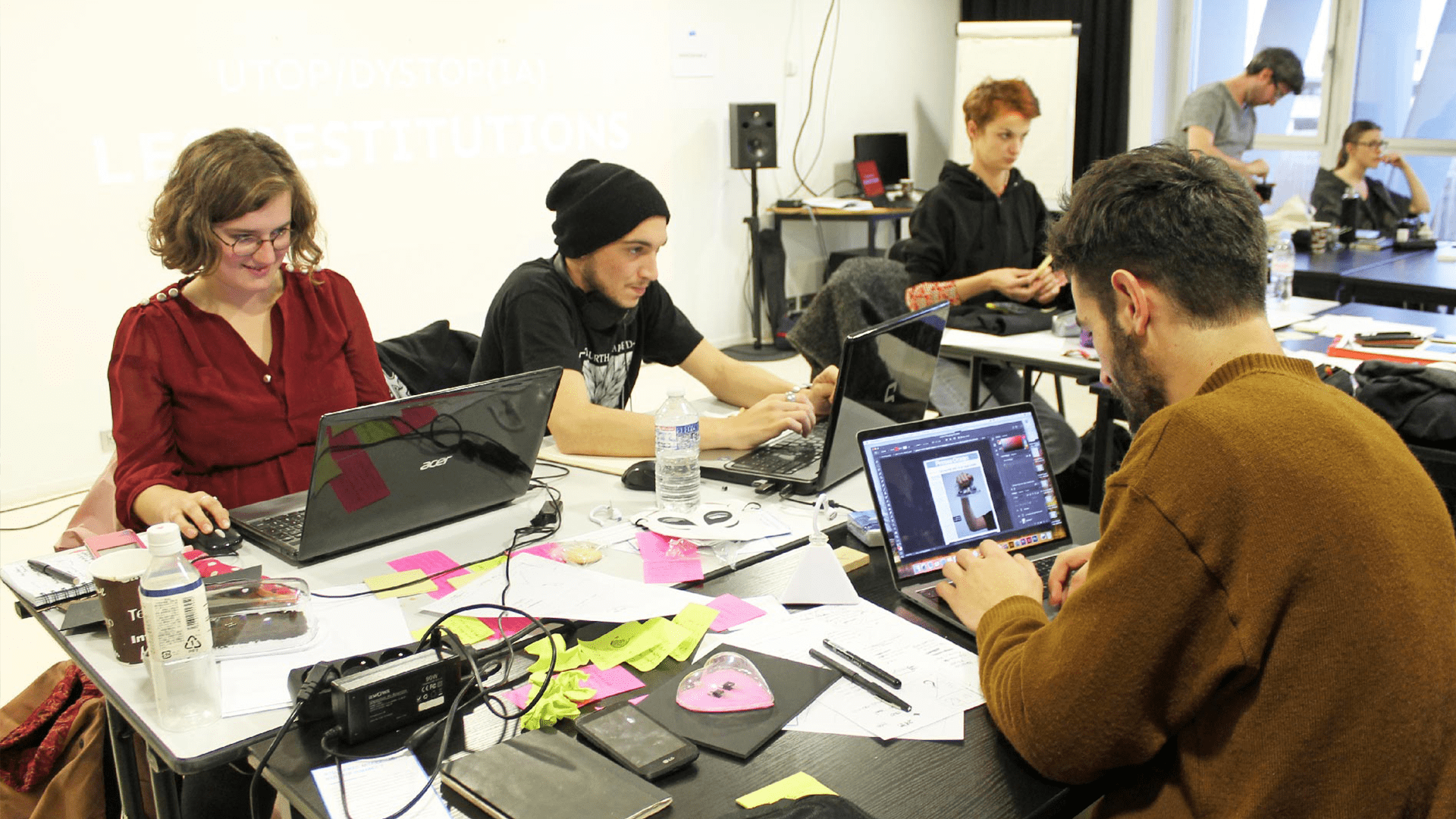
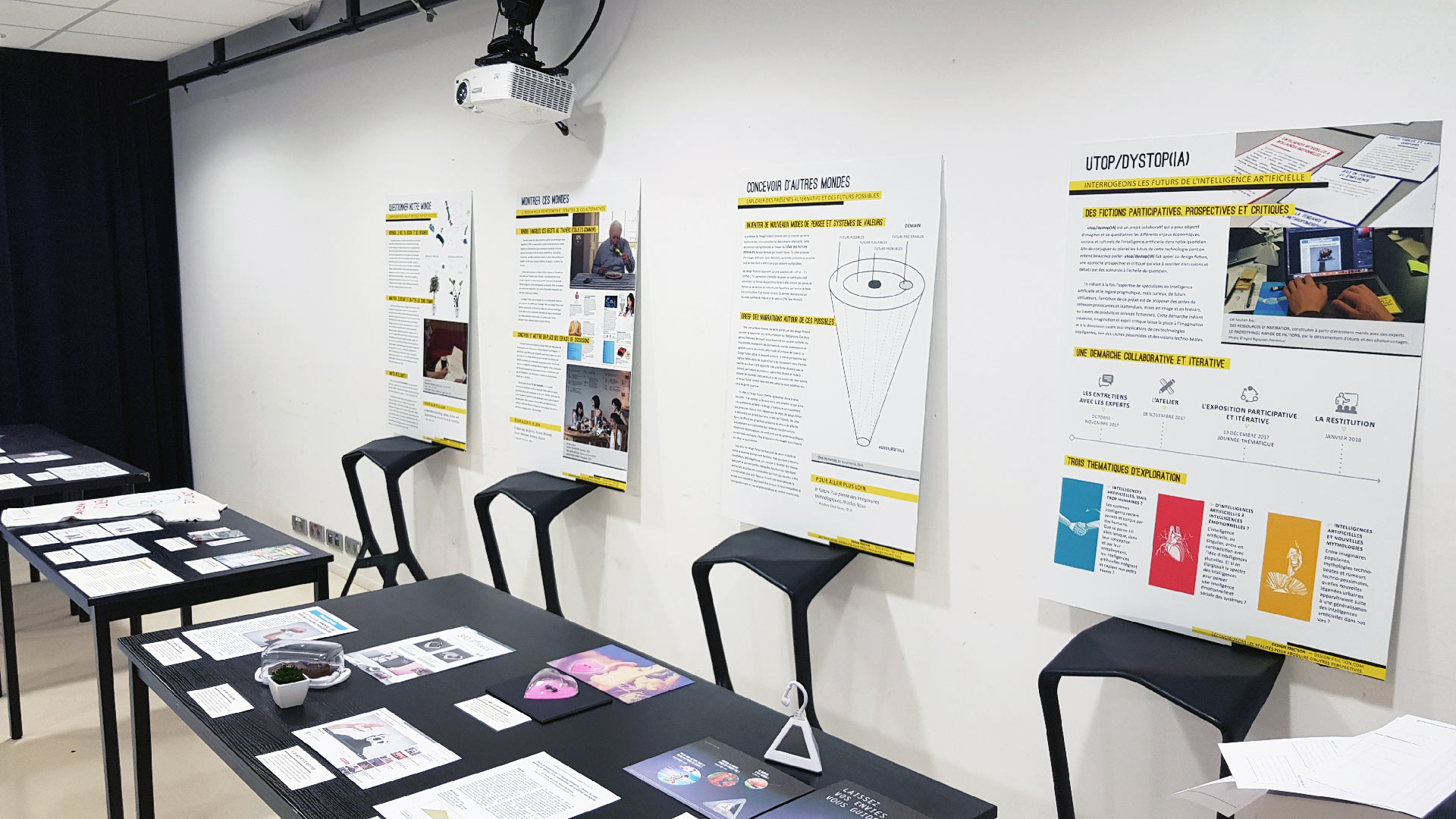
↑ Left: A glimpse of the initial co-design fiction workshop, where participants imagined the first speculative scenarios.
Right: A snapshot of the participatory mini-exhibition, a prelude to a ’re-fiction’ exercise during which new fictions were designed to respond to the scenarios from the first workshop.
